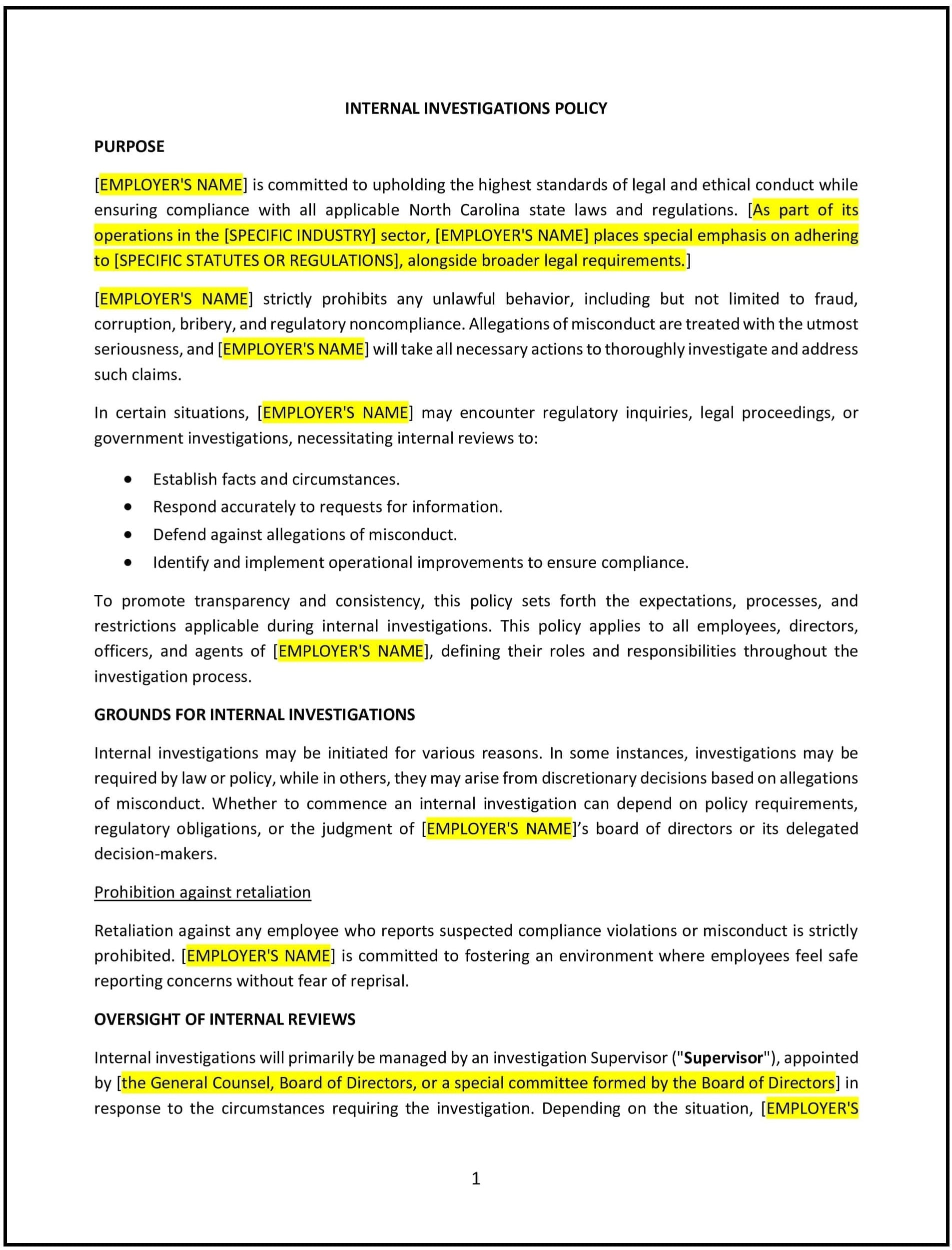Internal investigations policy (North Carolina): Free template
Got contracts to review? While you're here for policies, let Cobrief make contract review effortless—start your free review now.

Customize this template for free
Internal investigations policy (North Carolina)
An internal investigations policy helps North Carolina businesses establish clear procedures for conducting investigations into employee misconduct or other workplace issues. This policy outlines how investigations will be initiated, the steps involved, and the protections in place to ensure fairness, confidentiality, and compliance with state and federal laws.
By adopting this policy, businesses can handle internal investigations consistently, minimize legal risks, and maintain a fair and respectful work environment.
How to use this internal investigations policy (North Carolina)
- Define investigation scope: Specify the types of issues that will trigger an internal investigation, such as allegations of harassment, discrimination, theft, or violation of company policies.
- Establish procedures: Outline the steps for conducting investigations, including who will be responsible for overseeing the investigation, how evidence will be collected, and how interviews will be conducted.
- Ensure confidentiality: Clarify the importance of maintaining confidentiality throughout the investigation process to protect all parties involved and prevent retaliation.
- Guarantee fairness: Specify that all investigations will be conducted impartially, with employees being given the opportunity to present their side of the story and respond to any allegations.
- Reflect North Carolina-specific considerations: Ensure the policy complies with state laws related to workplace investigations, including any requirements for handling employee records and information.
Benefits of using this internal investigations policy (North Carolina)
This policy provides several benefits for North Carolina businesses:
- Promotes fairness: A clear, structured investigation process ensures that employees are treated fairly and that all sides are heard during investigations.
- Reduces legal risk: The policy helps businesses stay compliant with state and federal laws regarding workplace investigations, reducing the risk of discrimination or wrongful termination claims.
- Protects company reputation: A transparent investigation process helps maintain trust with employees and external stakeholders, ensuring that misconduct is addressed appropriately.
- Enhances workplace culture: By providing clear guidelines for handling investigations, businesses demonstrate their commitment to addressing misconduct and maintaining a respectful work environment.
- Ensures accountability: The policy ensures that employees are held accountable for their actions, helping maintain a safe and productive workplace.
Tips for using this internal investigations policy (North Carolina)
- Communicate the policy clearly: Ensure all employees are aware of the company’s internal investigation procedures and their rights during an investigation.
- Train investigators: Designate specific individuals to conduct investigations and provide them with training on investigative techniques, confidentiality, and legal compliance.
- Review investigations regularly: Regularly review investigation outcomes to ensure they are fair and align with company policies and North Carolina laws.
- Update the policy regularly: The policy should be reviewed periodically to reflect changes in legal requirements or company practices.